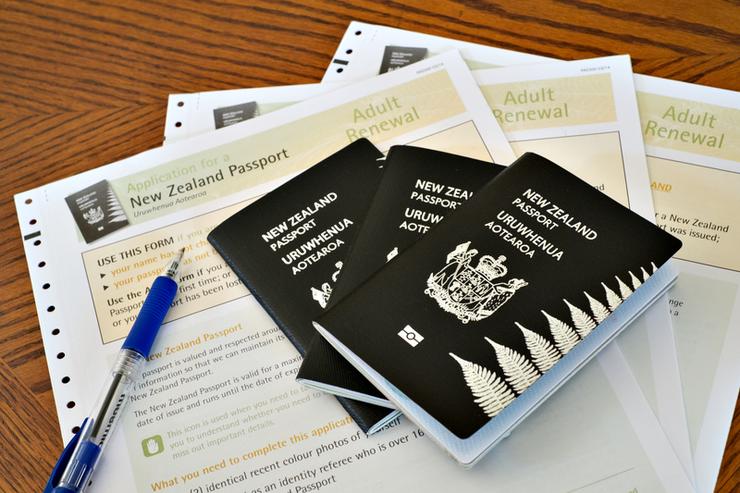
A recent news article focused on how migrants who get into trouble have resorted to getting media coverage in order to influence the Associate Minister of Immigration to reconsider their request for help. Their need to do so is put down to a “broken immigration system”, but I’m not sure I agree.
Special Directions
Making an approach to the Minister is called a request for Special Direction. It is a valid avenue for redress under the Immigration Act. In the right circumstances, it can be used to get an exception to the rules. For example, at Laurent Law we occasionally ask the Minister to waive the age limit on applying for skilled residence, which is set by the rules at 55 years of age. In other cases, we ask the Minister to provide an opportunity for someone to get a visa where no other policy exists.
Most of these cases are not decided by the Minister herself, or even the two Associate Ministers. This has increasingly been the case since the 2019 Heron report on decisionmaking about people who are liable for deportation. And what largely brought about that report was the influence of politics, through the media, on the decisionmaking process. Instead, many Special Direction requests are looked at by “delegated decision makers” (DDMs) who are senior Immigration managers who have the authority to act on behalf of the Minister.
Absolute Discretion
A decision on a Special Direction involves “absolute discretion”, which means in practice that there is no restriction on how that decision is made, and no pre-set rules. It also means that no reasons have to be provided – a simple Yes or No is all. In the news article cited above, this is criticised as leaving migrants “at the mercy of an individual”. This seems to imply that there should be some kind of rules around the use of such power, although there is no suggestion of what those rules should be.
Is that what we want, though, another layer of rules? Bear in mind that someone who finds themselves at the wrong end of the system, as many such people do, is precisely because they are shut out by the other immigration rules – and there are plenty of those.
Take the case which led to this article. A couple from Brazil missed out on applying for the one-off Special 2021 Resident Visa because their licensed immigration adviser overlooked filing their application before that category closed. Immigration NZ could not accept a late application because they are not allowed to make up the rules on their own, so it’s not their fault. We don’t blame the immigration adviser either, who freely admitted the error, because mistakes . . . they just happen sometimes.
This is exactly where you want the safety valve of being able to try for an exception. If you put artificial boundaries around that power, this could shut out some perfectly reasonable cases that cry out for a remedy. Almost every day I see situations in the immigration field which I have never seen before in my 28 years in this business. By definition, it is simply not possible to make laws for special cases. If you could, then they wouldn’t be special any more.
The flip side of this is that there is the chance of being declined. If you want to put your case into a forum where the usual rules don’t apply, then it is not reasonable to expect a particular outcome as if it was your right. When we take instructions to file a Ministerial, we always point out that there is no guarantee whatsoever of success.
What you should expect is that, if someone in a senior position is going to look at your file, they should approach it without having made up their mind in advance. That, then, comes down to the quality of the person sitting behind that desk. Again, this opens up the risk of human biases and failings getting in the way of a good decision; but we do want human beings, not robots, to make those decisions. All that we can hope for is that they will be “humane”, although that may not necessarily deliver what you want.
Going to the Media – Hmm, Maybe Not
It is said in this Radio NZ article that there was no other option for the couple in order to go for Residence. Except, that is, if one of them could get a job offer from an accredited employer. As it happens, that is the main way that most people can progress to Residence. One has to ask why, apart from the mistake by their adviser, this couple should achieve an outcome that most others do not have without meeting the usual policy criteria. Having said this, there is probably more background to this case that we do not know; but a bit more thought makes it harder and harder to be too sympathetic.
And this is why we never recommend that people go to the media about their plight. The job of news agencies and journalists is to tell stories. Increasingly, because of the tough climate for the news industry, they tell stories to sell more circulation, to get more clicks, views and shares. It is tempting to tell, not the whole story, but enough of a story to get a reader’s or viewer’s attention. The result may not necessarily put the people at the centre of the story in the best light – and my experience has been that it can do just the opposite.
In the immigration space, at least, there may be other options to explore with professional assistance. They might not be easy, or ideal, but they are usually better than putting your life on show for the world to pick it apart.